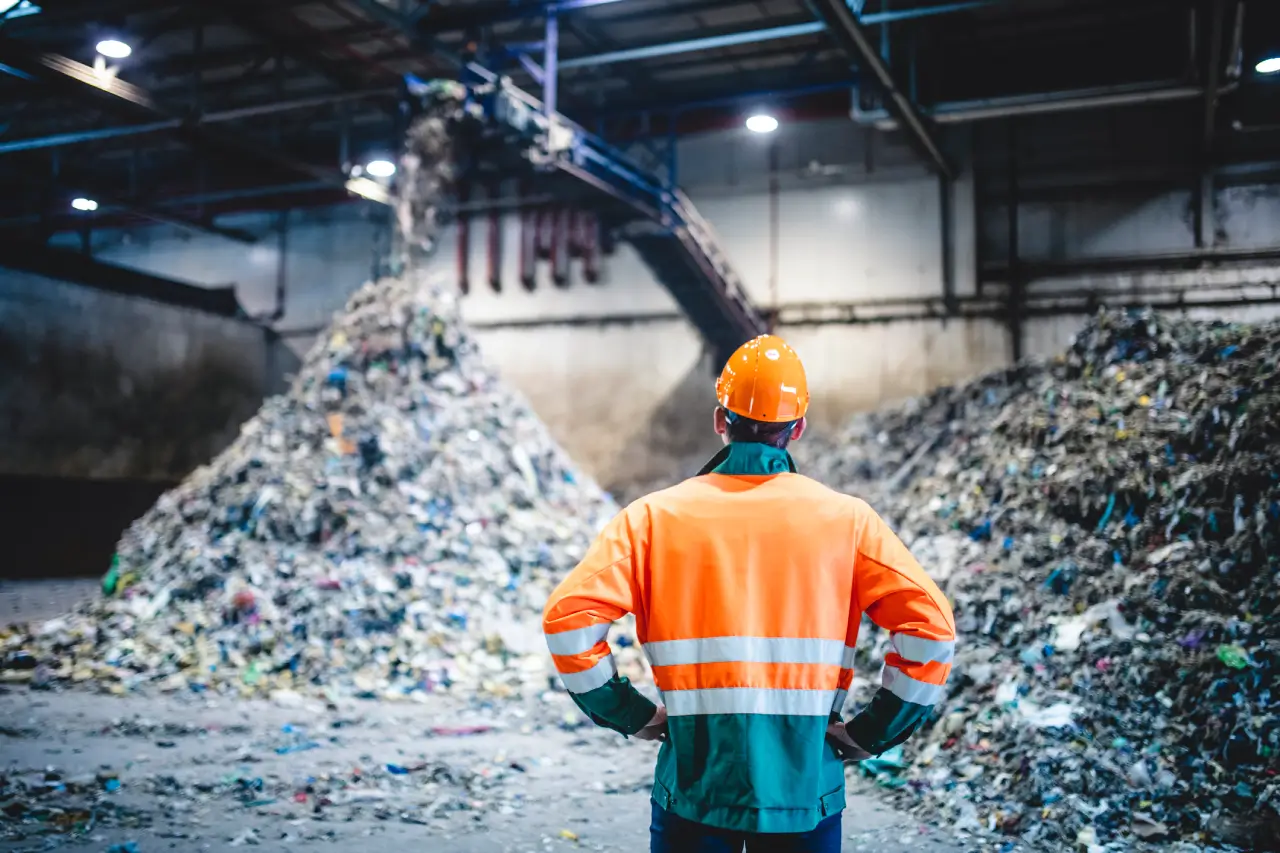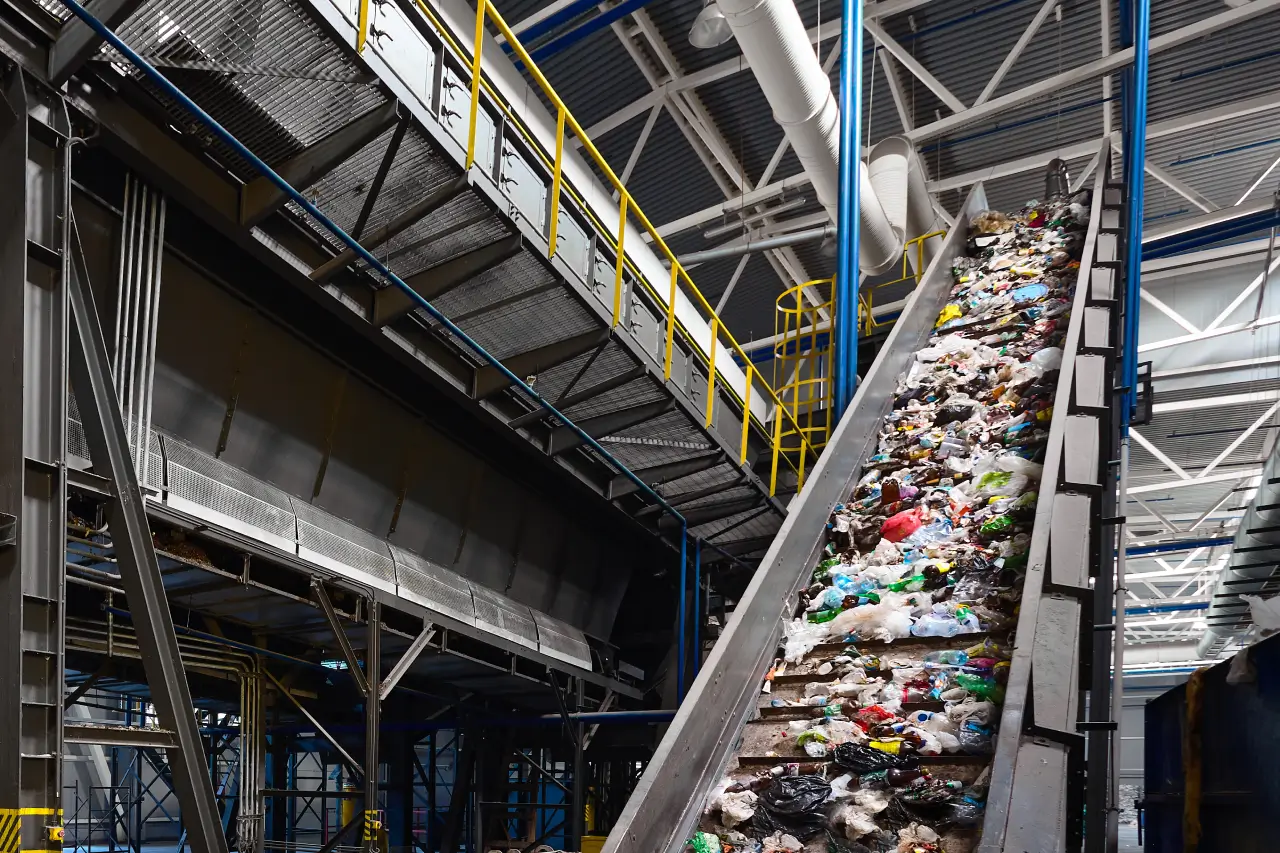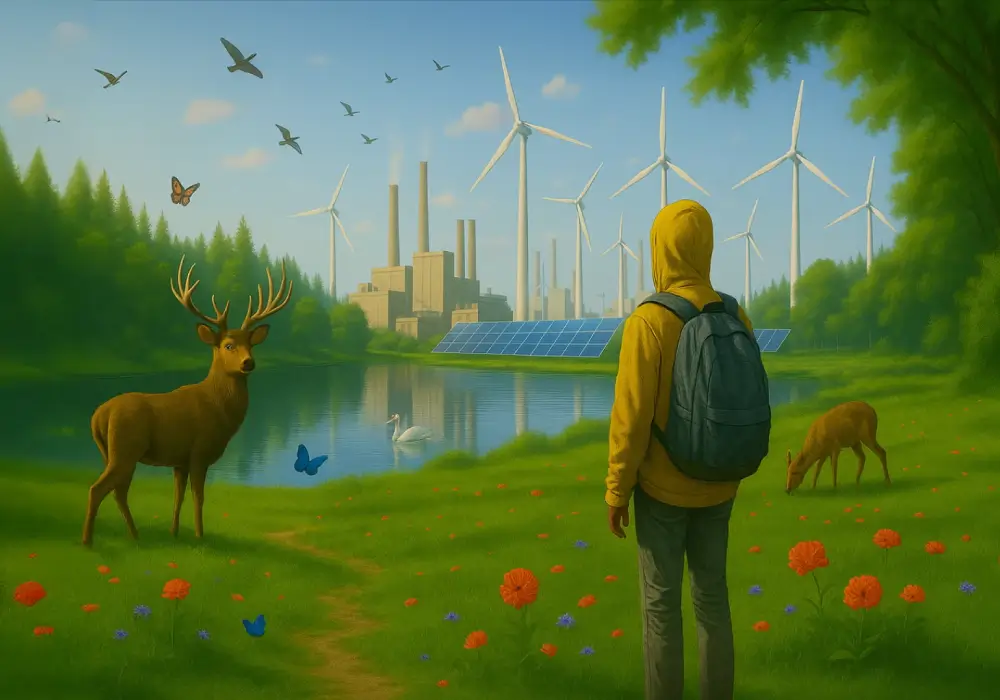Circular by Design: Aditya Birla Group’s push against plastic waste and more
- Copy
Plastic pollution and industrial waste are among the biggest environmental challenges of our time. Aditya Birla Group’s response is clear: treat waste not just as a problem, but as a resource.
Across its businesses, Aditya Birla Group is reducing plastic use, recovering materials through innovative technologies, and collaborating with new partners to embed circularity into operations. This Environment Day, we look at how the Group is addressing waste at scale, and with lasting impact.
A Group-Wide Commitment
In FY24, Aditya Birla Group’s India operations generated 4,837 MT of plastic waste. Every tonne was tracked, processed and accounted for through responsible collection, recycling and recovery mechanisms. In fact, 90% of the plastic waste produced by Aditya Birla Group companies were co-processed to reduce their impact on the environment.
But, the Group has gone beyond compliance, achieving plastic neutrality and even positivity in several cases. These efforts are aligned with the UN’s Sustainable Development Goals (SDG 12 and 13) and follow the principles of reduce, reuse and recycle.
Waste, not a challenge, but a resource
UltraTech Cement: Making Waste Work
 India’s largest cement company is also one of its largest plastic waste processors. In FY24 alone, UltraTech co-processed 4,372 metric tonnes of plastic waste, safely disposing of it in its kilns while recovering energy in the process. This is made possible through active partnerships with over 80 municipal bodies, converting city waste challenges into industrial solutions.
India’s largest cement company is also one of its largest plastic waste processors. In FY24 alone, UltraTech co-processed 4,372 metric tonnes of plastic waste, safely disposing of it in its kilns while recovering energy in the process. This is made possible through active partnerships with over 80 municipal bodies, converting city waste challenges into industrial solutions.
At scale, this creates measurable impact, especially in massive public events like Maha Kumbh 2025. UltraTech partnered with Prayagraj Nagar Nigam to collect plastic waste from the religious gathering and convert it into alternative fuel at the Dalla Cement Works.
It has also transformed its own packaging by introducing cement bags made from 50% recycled polypropylene (rPP). This cuts their virgin plastic consumption by 43%.
UltraTech Cement is 3.4 times plastic negative
Grasim Industries: Every Product Counts
From installing plastic bottle crushers in public places to distributing jute and paper bags, Grasim promotes recycling and responsible consumption.
It uses recycled cotton in textile production and has achieved 100% fly ash utilisation at its Chemicals division in Renukoot.
The “Green Champions” programme encourages employees to drive sustainability through energy conservation and community engagement.
Liva Reviva and Excel fibres, developed by the company, are industry-recognised examples of circular product innovation.
Green Champions: Grasim’s employees leading the sustainability charge.
Hindalco: Building the Circular Economy
Through Novelis, its global subsidiary, Hindalco is promoting aluminium as a sustainable alternative to plastic in packaging.
Hindalco is also investing ₹2,000 crore in a facility to recycle copper scrap and e-waste into LME-grade copper and precious metals, addressing one of the world’s fastest-growing waste streams.
The company is also exploring renewable energy and carbon capture technologies. A recent agreement with Greenko Group will supply carbon-free electricity to its Odisha smelter, reducing CO₂ emissions by 680,000 MT annually.
₹2,000 crore: Hindalco’s investment in e-waste and copper scrap recycling
ABFRL and ABLBL: Fashion with Responsibility
Aditya Birla Fashion and Retail Limited (ABFRL) and Aditya Birla Lifestyle Brands Limited (ABLBL) are phasing out plastic packaging and shifting to sustainable, biodegradable alternatives.
In FY22, 86% of packaging was already sustainable, with a target of 100% by this year (2025). Brands like Madura Fashion & Lifestyle and TASVA now use bio-compostable materials for polybags and clips.
Consumer engagement plays a vital role. Initiatives such as the “Share Happiness Takeback Programme” and “Zero Waste to Landfill” are creating circular systems across retail operations. Even the small things matter—like the “One Product, One Hang Tag” initiative that cuts down on unnecessary plastic.
Biodegradable, traceable, recyclable: ABFRL’s packaging transformation is in full swing
Birla Cellulose: Closing the Loop
Birla Cellulose is flipping the script on the fashion industry’s waste problem with Liva Reviva. It is increasing production of Liva Reviva, a circular fibre made using recycled textile waste and FSC-certified wood.
Through R&D and collaborations like its partnership with Circ, the company is advancing textile-to-textile recycling, and developing alternatives to plastic packaging such as aluminium-jute hybrid bags.
These innovations are designed not just to reduce waste, but to reshape the textile value chain for long-term sustainability.
Circular fibres like Liva Reviva are giving new life to textile waste.
Aditya Birla Chemicals: Innovating at the Molecular Level
Aditya Birla Chemical’s Recyclamine® technology enables the recovery of materials like carbon fibre and plastic from thermosets—an industry-first.
The company also operates Zero Liquid Discharge systems, notably at its Thailand plant, ensuring no liquid waste is released into the environment.
Recyclamine®: Aditya Birla Chemicals’ breakthrough in thermoset recycling
 Waste as a Strategic Priority
Waste as a Strategic Priority
Across cement, metals, textiles, fashion, and chemicals, Aditya Birla Group is making waste management a core part of business strategy. Through innovation, collaboration and scale, the Group is not just tackling waste, but transforming it into a driver of sustainability and resilience.

















